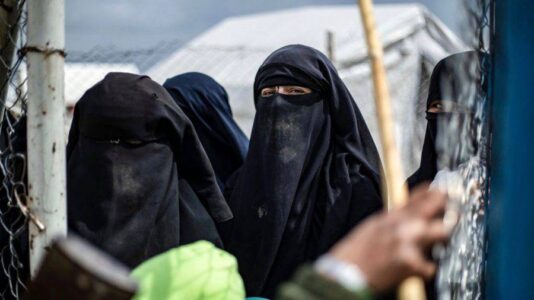
Women who join the Islamic State are being ‘underestimated’ due to gender stereotypes
Shamima Begum, left the UK in 2015 to join terrorists in Syria, where she lived under its rule for more than three years. In February last year the former Home Secretary Sajid Javid revoked her British citizenship due to national security concerns. Begum has since taken legal action to reverse the government’s decision.
A United Nations official has warned that women who join Daesh, are being “underestimated” by international security services due to gender stereotypes.
In an interview with the Independent, the head of its Counter-Terrorism Committee Executive Directorate (CTED) said there were a “range of different biases in investigations, charging, sentencing and the provision of rehabilitation and reintegration support”.
Although she didn’t mention the Shamima Begum case directly, executive director Michele Coninsx said that governments should “steer away from politicising and sensationalising women’s roles in terrorism”.
Begum, now 20, was one of three east London schoolgirls who travelled to Syria in February 2015, to join the Daesh terrorist group where she lived under its rule for more than three years.
She had her citizenship stripped by the UK Home Office under then-Home Secretary Sajid Javid over national security concerns after being found housed at a refugee camp in 2019, according to UK media.
Ms Begum told UK media that she was “just a housewife” after joining Islamic State, where she married Yago Riedijk, a Dutch rebel, and later left Raqqa in January 2017 after losing two children and a third child in 2019.
She also told the Times that she had “no regrets” about joining Islamic State and that severed heads from hostages “didn’t faze” her at all.
Last year Begum took legal action against the Home Office and the decision of the Special Immigration Appeals Commission (Siac), which hears challenges to decisions to remove a person’s British citizenship on national security grounds.
Earlier this month the Court of Appeal ruled that Begum should be allowed to return to the UK as it was the only way in which she could have “a fair and effective appeal” but on Friday the government won the right to fight that ruling at the Supreme Court.
Ms Coninsx said that it is procedure in several countries to remove jihadi’s citizenships but others require a criminal conviction. She added that by international law no individual should be rendered stateless.
The Home Office claims that Begum is eligible for Bangladeshi citizenship, due to her parents’ heritage, but the Dhaka government has said there was “no question” of her being allowed into the country.
Opinions in the UK have been split over whether Begum was a “groomed” victim or is a national security threat.
Ms Coninsx said all jurisdictions examined for a CTED report released in July “face challenges” with female Isis returnees.
She added: “We must aim to ensure that all states have in place tailored, case-by-case and gender-sensitive criminal justice responses which take seriously the different roles that women can play in terrorist groups, including violent roles, as well as take into account any mitigating circumstances, for example where they were brought to Isis under duress.”
Begum is among dozens of British women and children currently living in Syrian Democratic Forces (SDF) camps after fleeing the Daesh organisation. The SDF has asked for foreign detainees to be repatriated to their original countries, but so far the British government has refused.
Source: Sputnik News





